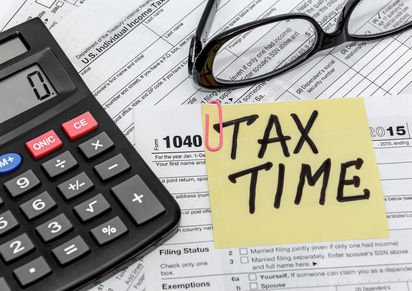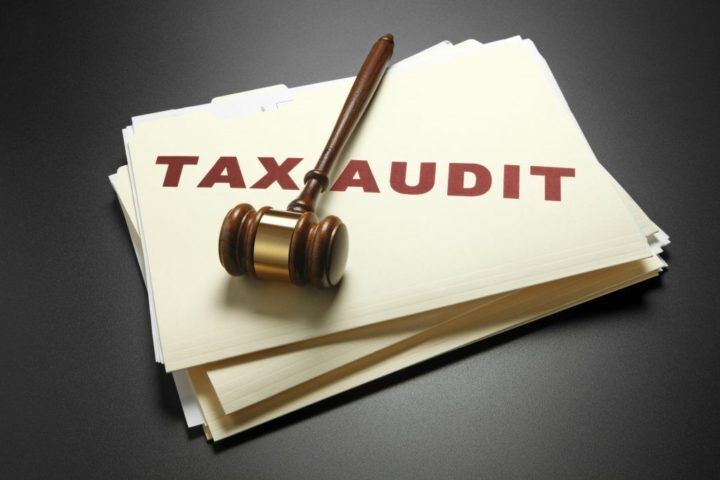Offshore Voluntary Disclosure Attorney

Introduction
Having an offshore voluntary disclosure attorney can be invaluable when dealing with tax issues related to foreign accounts or assets. An attorney experienced in this area can guide you through the process and help ensure your rights are protected. This article outlines key information about offshore voluntary disclosure attorneys – what they do, why their services are needed, and how to choose the right one.
What is Offshore Voluntary Disclosure?
An offshore voluntary disclosure is when a taxpayer proactively comes forward to report previously undisclosed foreign accounts or assets to the IRS. They may also have to report unpaid taxes related to these offshore holdings.
Some reasons a person may want to utilize offshore voluntary disclosure include:
- Coming into compliance to avoid potential criminal charges or steep civil penalties
- Reporting undisclosed foreign financial accounts or entities
- Disclosing undisclosed foreign income or gifts
Voluntary disclosure programs can allow qualified taxpayers to avoid criminal prosecution and receive reduced civil penalties. But the process can be complicated, especially when amending several years of returns. This is why enlisting an offshore voluntary disclosure attorney is so valuable.
Benefits of Using an Offshore Voluntary Disclosure Attorney
Here are some of the key benefits an experienced offshore voluntary disclosure attorney can provide:
- Guidance on Eligibility: They can review your situation and advise if you are eligible for one of the IRS’ voluntary disclosure programs. These programs have specific requirements that must be met.
- Help Preparing Disclosures: An attorney will assist with preparing foreign account disclosures (FBARs) and gather information required for submission.
- Tax Return Preparation: They can help file any amended income tax returns required and ensure proper reporting of foreign-sourced income. This can save clients substantial IRS penalties.
- Negotiating Penalties: While voluntary disclosure does not eliminate penalties, an attorney can often negotiate significantly reduced penalties with the IRS. This also depends on the taxpayer’s level of cooperation and willingness to pay taxes/interest due.
- Legal Protection: An experienced attorney serves as legal counsel through the process and protects the client’s rights. This can provide considerable peace of mind to clients disclosing sensitive financial information.
Without adequate legal help, taxpayers risk overlooking requirements and receiving excessive penalties. An offshore voluntary disclosure attorney’s expertise leads to the best possible outcome.
Choosing the Right Offshore Voluntary Disclosure Attorney
With so much on the line, it is critical to choose the right legal counsel to guide your offshore voluntary disclosure. Here are important factors to consider:
- Specialized Expertise: Look for attorneys who specialize in this specific area. General tax expertise isn’t enough. Find someone experienced assisting clients with foreign tax and FBAR disclosures.
- Track Record of Success: Ask about the success rate of previous voluntary disclosures handled. How often do clients receive the expected civil penalty reductions? You need an attorney with a proven track record navigating this process.
- Client Testimonials: The right attorney will be able to provide client testimonials detailing positive experiences and results achieved through the voluntary disclosure process. This assures you that they have helped real clients in similar situations.
- Clear Fee Structure: Beware attorneys who evade answering questions about their pricing. A reputable offshore voluntary disclosure attorney will clearly explain their pricing structure so you understand exactly what to expect.
- Excellent Communication Skills: As voluntary disclosure can be a lengthy, document-intensive process, you need an attorney who communicates clearly and keeps clients updated on progress. Ensure they have systems and procedures for regularly updating clients.
Offshore voluntary disclosure attorneys with strength in these areas give taxpayers their greatest chance of achieving tax compliance without excessive penalties. Investing in the right legal counsel from the start pays dividends throughout the disclosure process.
Also Read:
https://besraha-news.online/dog-bite-injury-lawyers-can-help/
The Voluntary Disclosure Process Step-by-Step
While every case has its own nuances, there is a general sequence to the offshore voluntary disclosure process. Having an overview helps set realistic expectations:
- Initial Consultation: The client meets with the attorney for an initial consultation to discuss their situation and voluntary disclosure options. The attorney outlines the process and performs a preliminary case review.
- Formalize Attorney-Client Relationship: Client engages the attorney by signing a representation agreement detailing the terms and scope of services.
- Information Gathering Phase: Attorney requests for various records and documents related to foreign accounts/assets. This is meticulously cataloged and organized for disclosure.
- Pre-Clearance Submission: When documentation is compiled, the attorney works with IRS Criminal Investigation Division to confirm the client is eligible for voluntary disclosure before proceeding.
- Disclosure Letter: Attorney prepares a detailed voluntary disclosure letter outlining previously unreported foreign income, assets, account information, etc. This typically includes amended tax returns.
- Package Submission: The full voluntary disclosure package is submitted to the IRS Offshore Voluntary Disclosure Program. Initial review takes at least 60 days.
- Negotiations & Acceptance: Most cases involve back-and-forth negotiation between attorney and IRS regarding scope of disclosure and penalties assessed. The goal is a reasonable settlement.
- Closing Agreement: Once negotiations conclude, attorney secures formal Closing Agreement with IRS stipulating terms of voluntary disclosure results including penalties & taxes owed.
- Payments & Further Reporting: Client pays all taxes, interest, and penalties per closing agreement. Future FBAR reporting may also be required to evidence continued offshore account compliance.
While each case follows this general pattern, an experienced attorney handles the heavy lifting at every stage. This alleviates stress clients often feel when tackling tax deficiencies or disclosures. The attorney makes the process as smooth as possible while advocating for the client’s best interests every step of the way.
Why Voluntary Disclosure is Worth It
Coming forward voluntarily to report offshore tax issues is never an easy decision. The extensive documentation requirements, amended tax filings, and paying owed back-taxes makes it a difficult process. However, taxpayers who initiate offshore voluntary disclosure reap significant long-term benefits that make the efforts worthwhile:
Avoid Criminal Prosecution: Voluntary disclosure nearly eliminates the chance of criminal charges related to previously unreported foreign accounts or assets. The risk of criminal prosecution through tax evasion or filing false returns essentially disappears.
Penalty Reduction: While back-taxes and interest must be paid, voluntary disclosure significantly decreases penalties – by up to 50% in some cases compared to standard rates. Attorneys negotiate even lower penalties in many situations.
Peace of Mind: By coming forward before the IRS learns of foreign tax issues, huge uncertainty and anxiety is lifted. You regain confidence knowing past mistakes have been corrected as much as reasonably possible.
Essentially, voluntary disclosure removes the specter of criminal prosecution while minimizing financial penalties. Consultation with an experienced offshore voluntary disclosure attorney helps determine if pursuing voluntary disclosure is worthwhile based on individual circumstances and risk factors. In many cases, it offers the optimal path back towards offshore tax compliance.
Conclusion
If you have unreported foreign financial accounts or assets previously left off your tax returns, obtaining guidance from an offshore voluntary disclosure attorney is imperative before proceeding. The voluntary disclosure process can be complex, with many nuances determining outcomes. An attorney thoroughly evaluates your situation and opportunities for reducing penalties ahead of disclosure. They also safeguard your legal rights while liaising with the IRS throughout the process to negotiate the most beneficial settlement. This provides the greatest assurance in achieving tax compliance and avoiding future offshore tax headaches.







